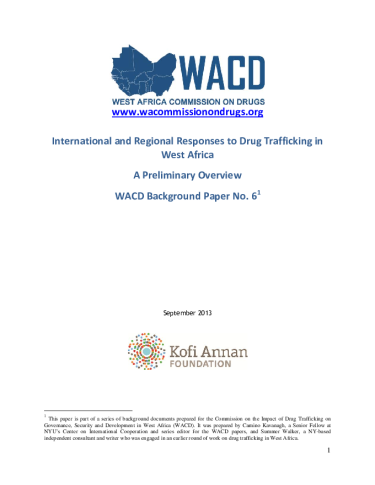The main objective of this background paper is to develop a preliminary overview of i) the international, regional and national policy and operational responses that have been developed in response to drug trafficking in West Africa to date, and the types of drugs they target; ii) the implementation status of these initiatives; iii) the perceived impact of these responses to date, including the mechanisms that have been established to monitor and measure impact and effectiveness; and iv) the main multi- and bi-lateral partners engaged in supporting regional efforts to stem drug trafficking.
The findings of the study were presented to the West Africa Commission on Drugs (WACD), as part of its fact-finding work on the impact and response to drug trafficking in West Africa. Since a separate, in-depth paper on treatment services for drug users in West Africa is currently under development, the paper focuses predominantly on responding to trafficking rather than drug use.


